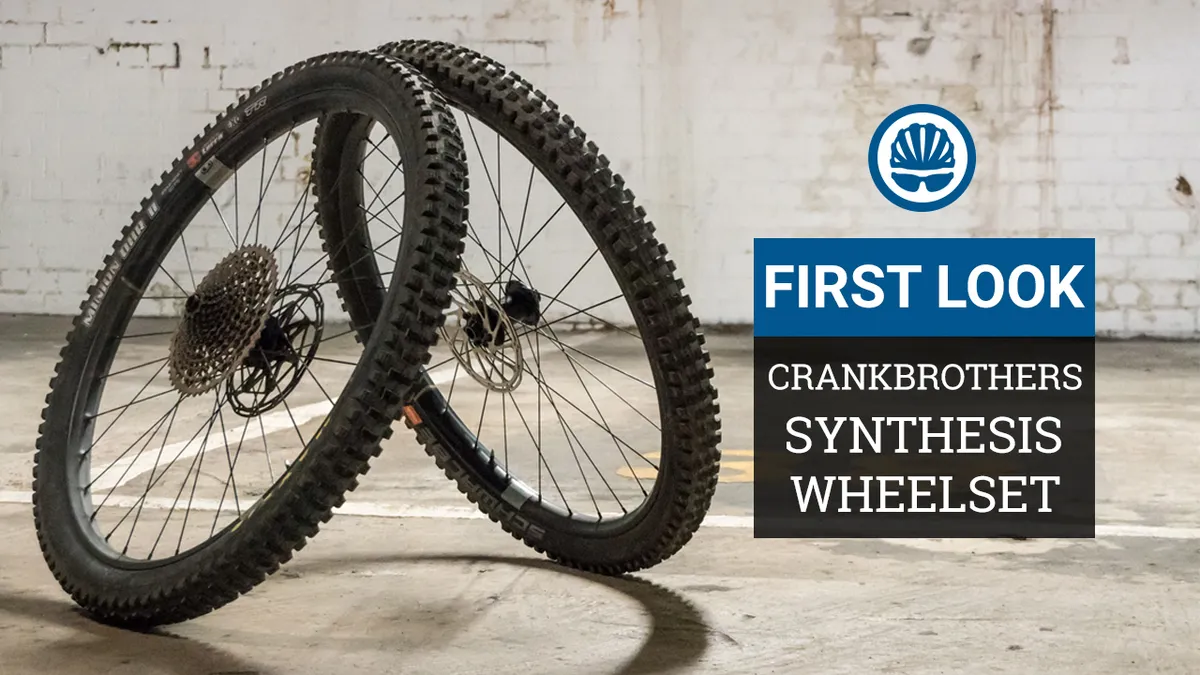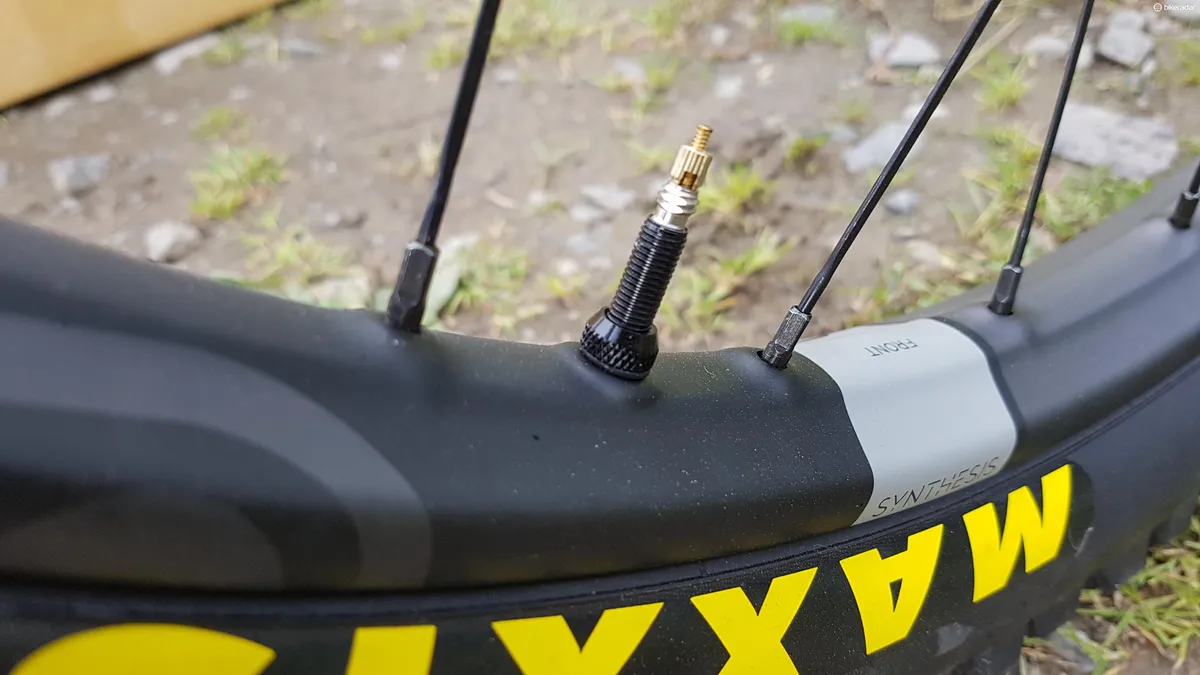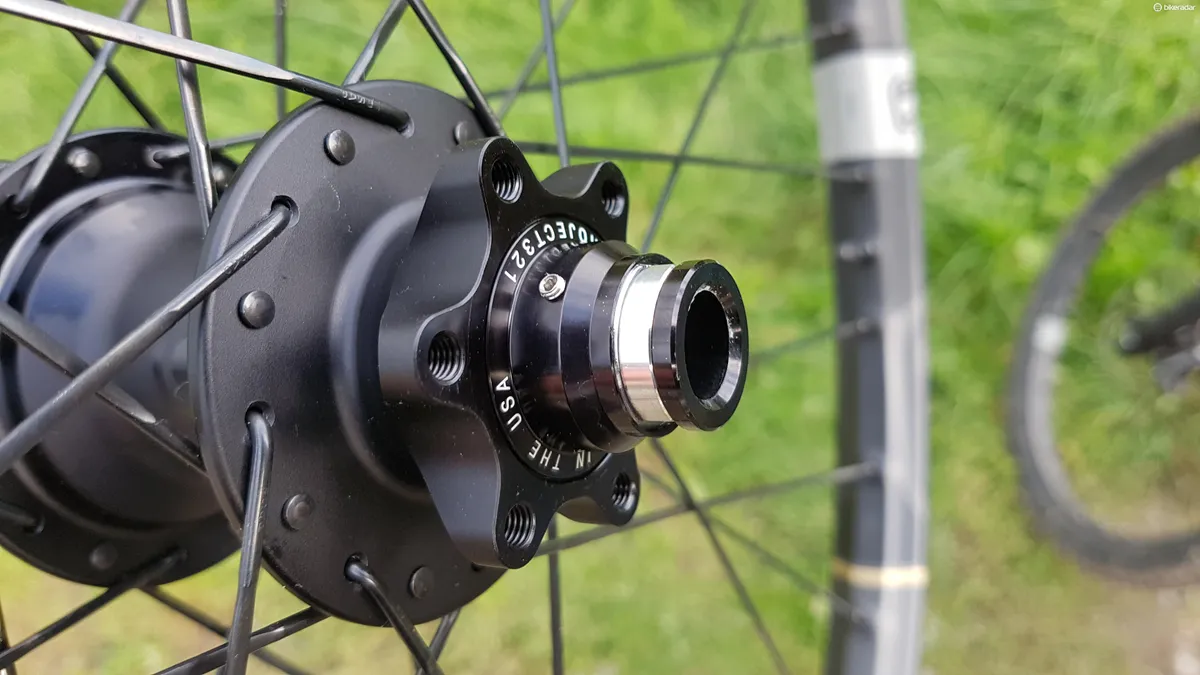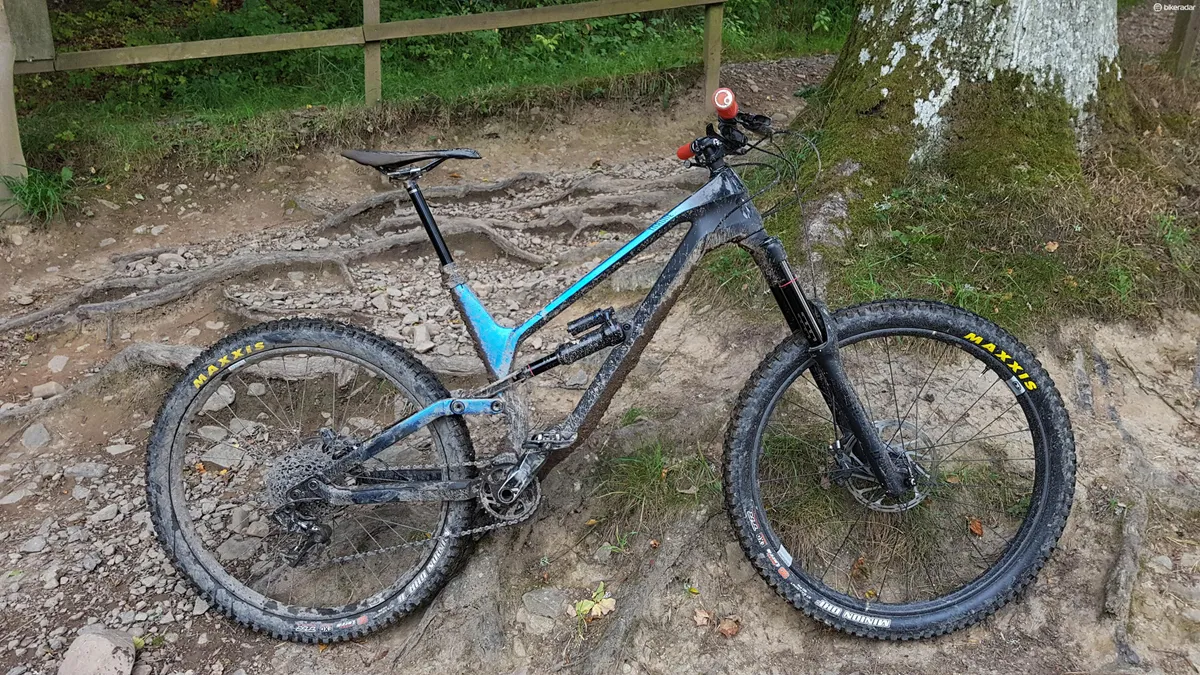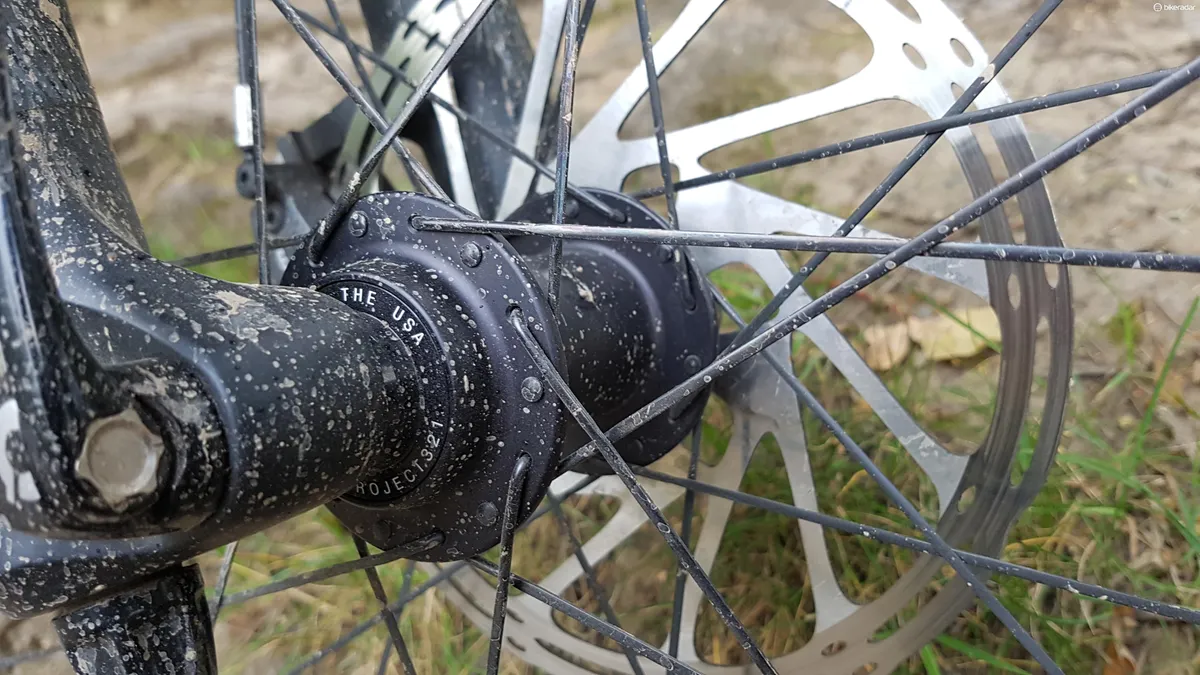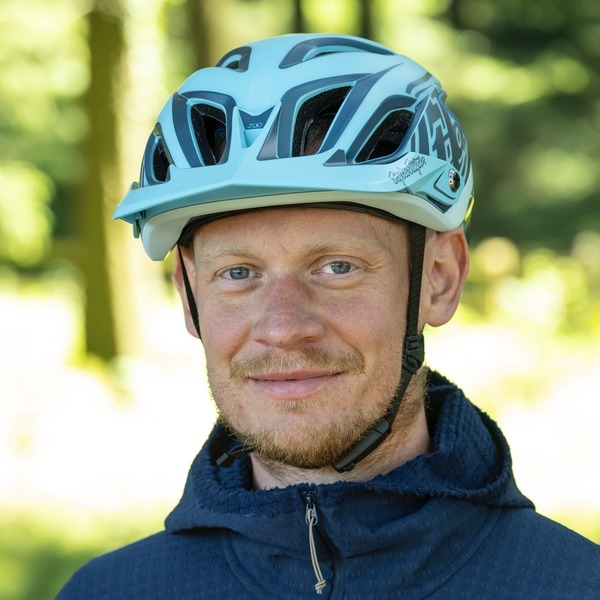Crankbrothers has released a new range of carbon wheels, named the Synthesis, which Crankbrothers claims are the first properly tuned wheels for mountain biking. Enduro riders are catered for from launch, while XC and DH riders will benefit from the wheels' features a little later down the line.
The Selle Royal group, which owns the Crankbrothers brand, has an R&D group called SR56, based out of Utah in the US. This group is headed by Jason Schiers who, having worked at Reynolds on its carbon wheels, went on to found Enve (or Edge Composites as it was then).
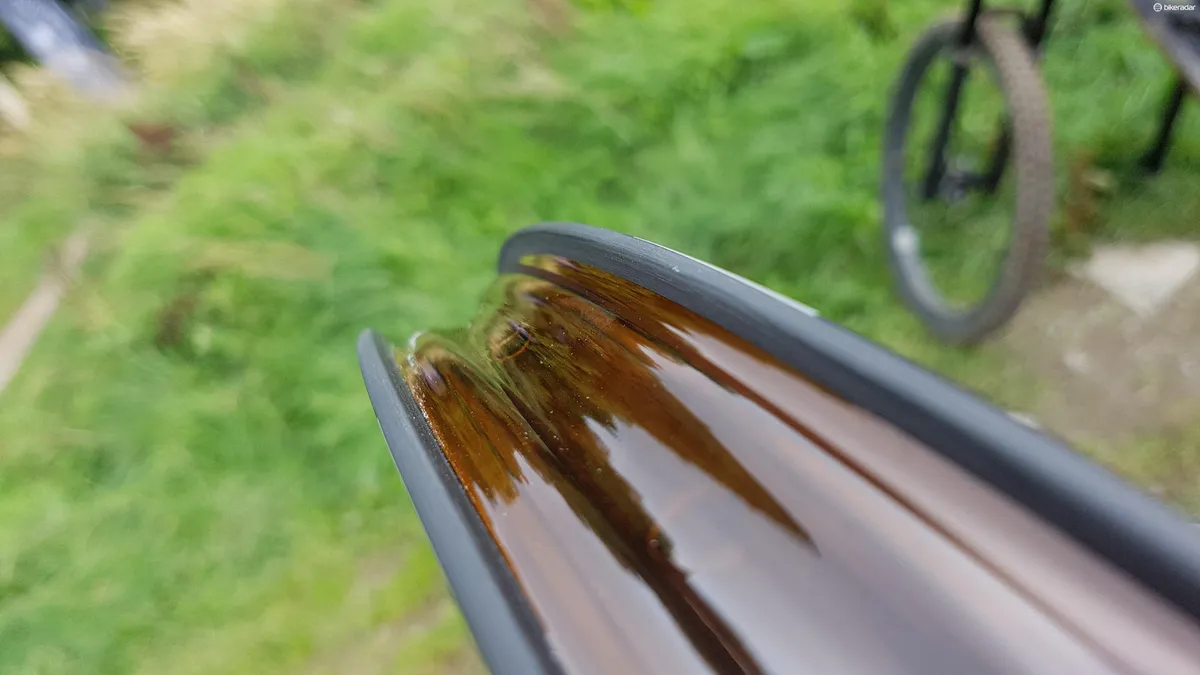
Along with legendary Australian wheel builder Mello Bouwmeester, who was introduced to Shears by Cedric Gracia, Schiers and his SR56 group developed the Crankbrothers Synthesis wheels.
What’s Synthesis all about?
Crankbrothers' new carbon Synthesis wheels
Carbon mountain bike wheels seem to follow one of two paths: either brutally stiff, but very accurate and efficient, or softer, giving compliance and comfort, but not that snap that many wish for from carbon hoops.
While Schiers' earlier wheels at Enve had been built with a stiff box section design, the wheels from Bouwmeester used a single skin, giving a much softer ride feel.
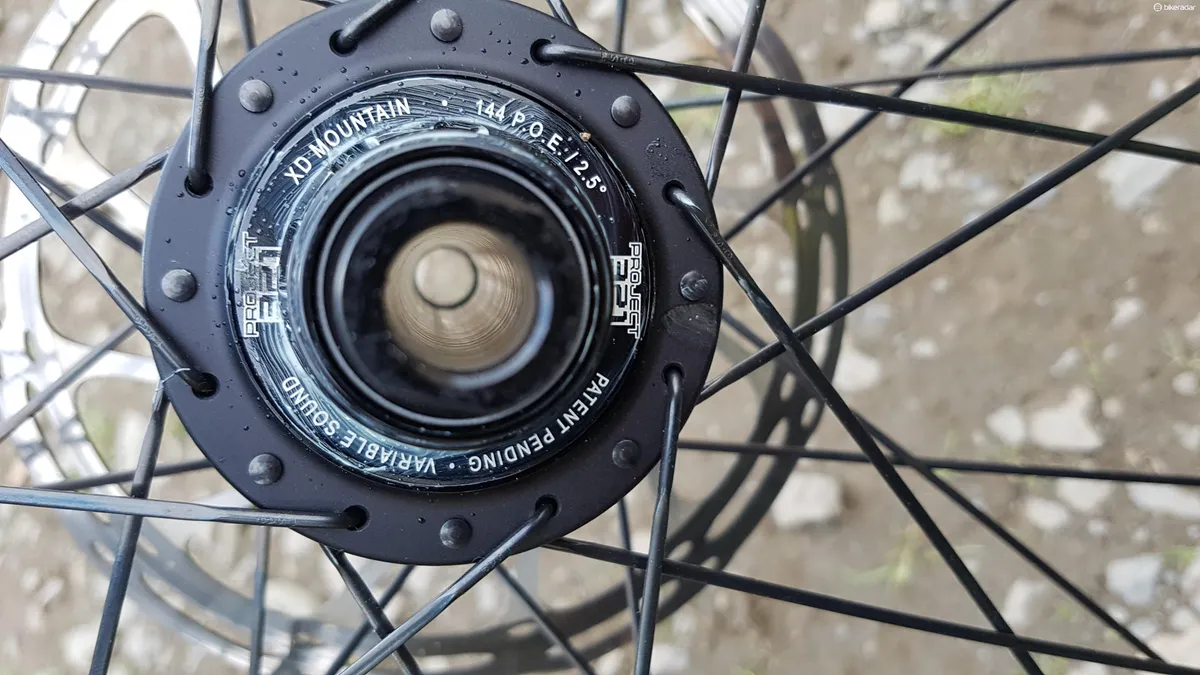
Both have their advantages, but it was apparently difficult to get the best of both worlds out of a pair of wheels built the same way.
In testing, with a wide range of riders, Crankbrothers says that there was a complete split between riders who liked compliance (and generally talked about comfort and grip in their feedback — born from the front wheel) and those who liked stiffer wheels (they mentioned the direct feeling of acceleration out of corners — attributed to the rear wheel).
SR56 therefore designed these Synthesis wheels, with a softer, more compliant front wheel and a stiff rear, aiming to get the best of both worlds.
The front wheel has a width of 31.5 mm and is built with 28 spokes. The rear is 29.5mm wide and has 32 spokes. While both share the same cross section, there are slight differences in rim material to aid stiffness, or compliance, and different spoke tensions will be used.
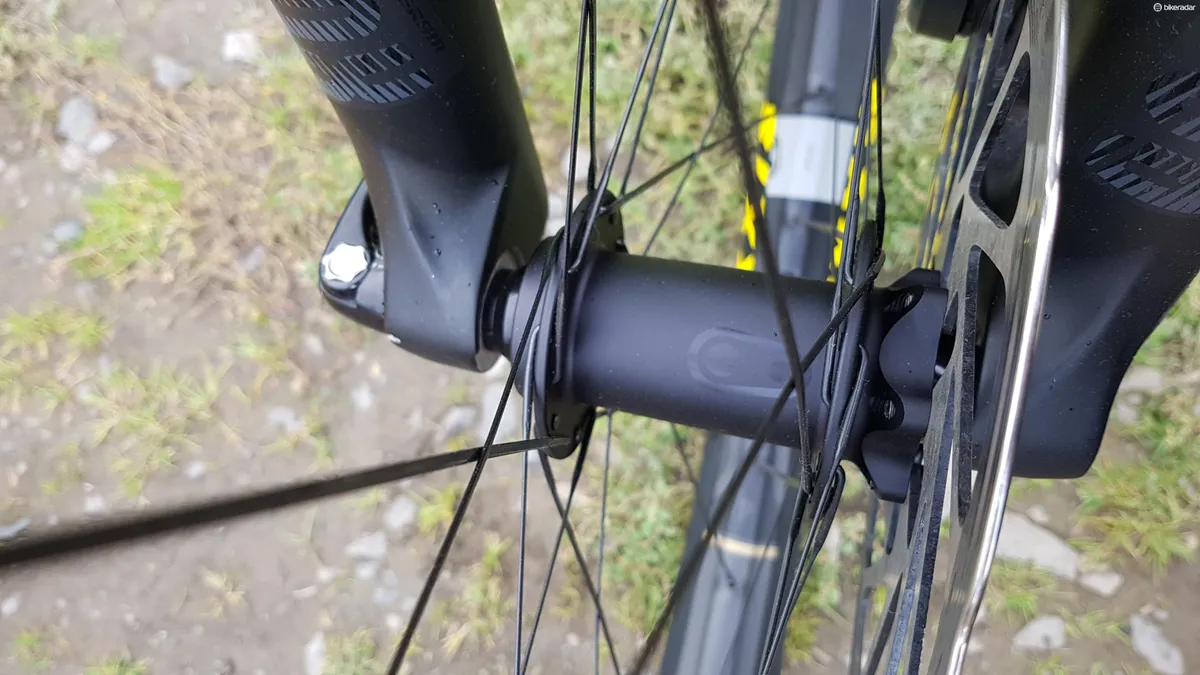
The idea, then, is to get the comfort and control of a softer front wheel with the snap of a stiff rear.
Should failure occur, the rims are designed to hold together even after cracks appear to avoid catastrophic failure on the trail. Crankbrothers will offer a lifetime guarantee.
Further Crankbrothers Synthesis wheels details
There will be three Synthesis wheel families available from Crankbrothers, with two price points for each type of wheel, though they’ll share the same rims: the 'E' enduro wheelsets, the 'D' DH wheelsets and the XCT wheels.
The enduro wheels are the first to be launched, with the top-line E11 wheelset coming in at £2,150. These come with the carbon rims, bladed spokes and hubs built by a small machine-shop brand called 321, which use a magnetic freehub for a very quick pick-up.
There's then the Synthesis E wheelset, at £1,500, which comes with the same rim, but regular spokes and a standard set of Crank Brothers hubs.
We expect the DH and XTC wheelsets to follow similar pricing and details.
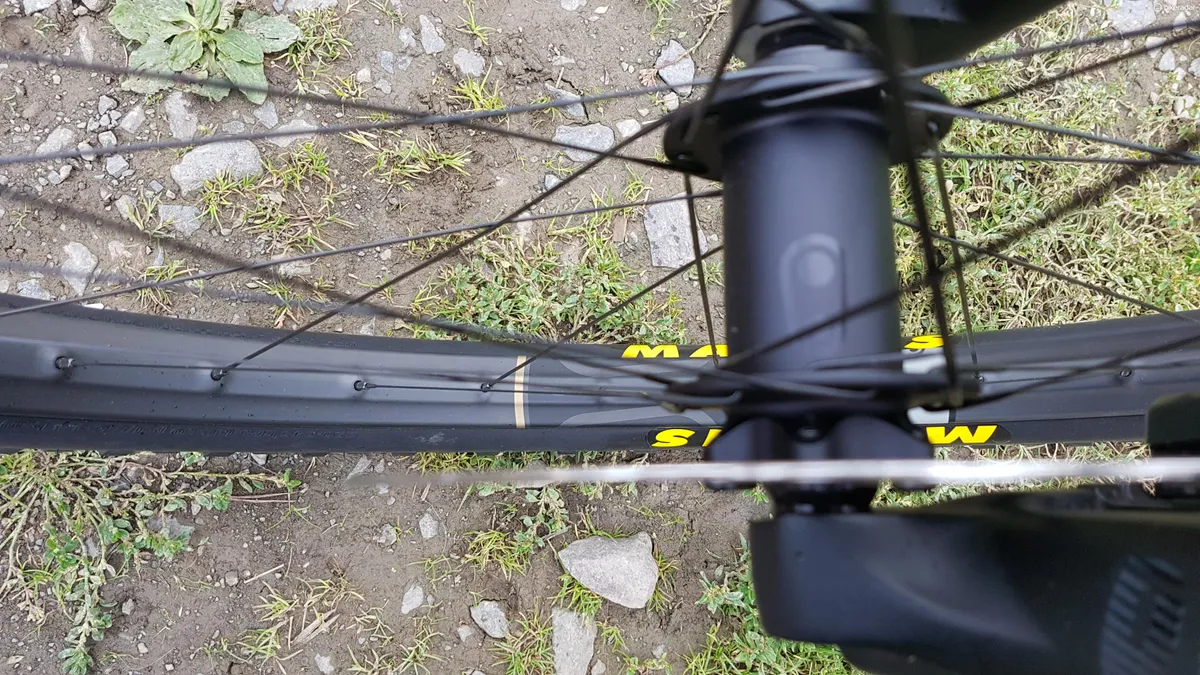
Much like the new Shimano XTR hub that's recently been announced, the 321 hub is virtually silent, which I rather appreciated on the trails. Knowing that this isn't to everyone's taste, 321 offers an 'upgrade' kit to make the hubs noisier!

Crankbrothers will sell the rims alone too, so they can be built on to a hub of your choice, and they’ll provide a spoke tension chart for your wheelbuilder to refer.
Crankbrothers Synthesis wheels initial ride impressions
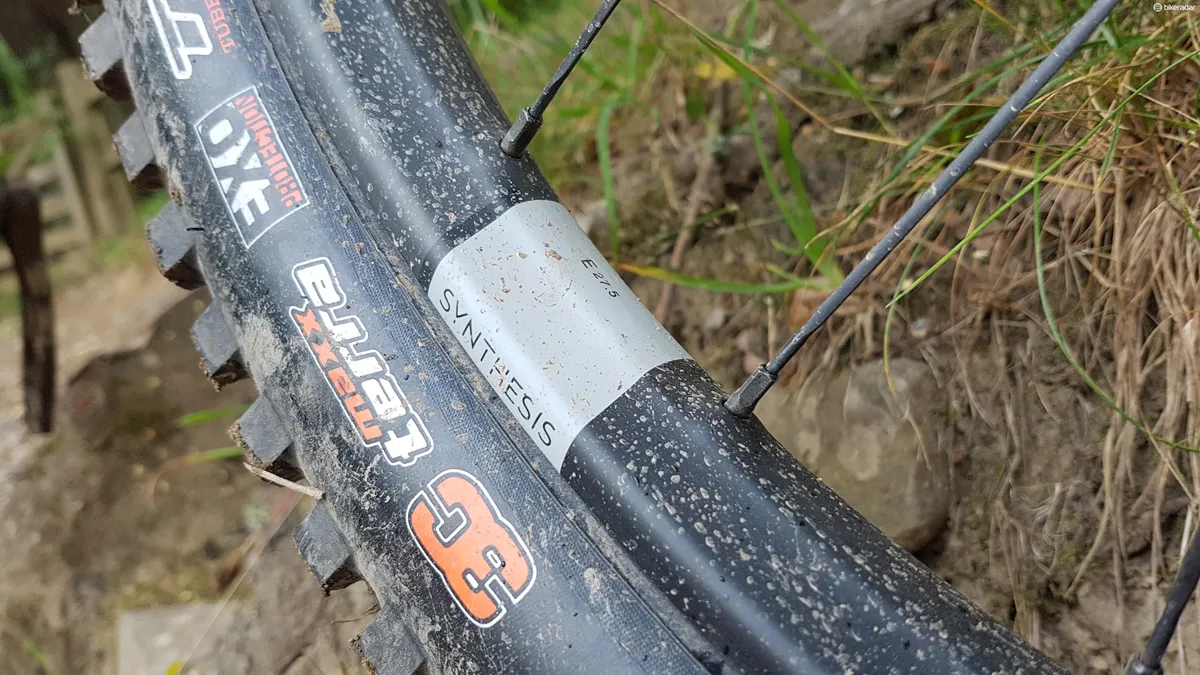
I rode the E11 wheels for one day of uplifted riding on semi-rough DH trails in Innerleithen, Scotland, on a Canyon Torque with RockShox Pike RCT3 forks.
Without running wheels back to back, it’s tricky to get a full view of how well they perform compared to other wheels out there, so I will reserve final judgement for when I’ve had the wheels longer term and ridden on more familiar trails.
Having ridden a number of very stiff carbon wheelsets, I was initially impressed with the feel through the bars. While there are numerous factors that determine hand and arm comfort on rough trails, I think it is possible to feel the difference between a stiffer or softer wheelset.

The front end of the bike didn’t feel harsh or spiky, and this related to decent levels of comfort through the handlebars. I rode some pretty steep trails — almost sat on the back tyre at times — and I never found that the front end felt particularly nervous or laterally soft.
The Torque is a great bike, which definitely attributed to the confidence it gave, but I came away impressed.
The rear wheel also never felt out of place. Acceleration seems smart, partly thanks to the super-quick pick-up of the rear hub, but perhaps also thanks to the stiff-ish build. The wide profile of both rims meant that there was plenty of volume for the Maxxis tyres on the bike.
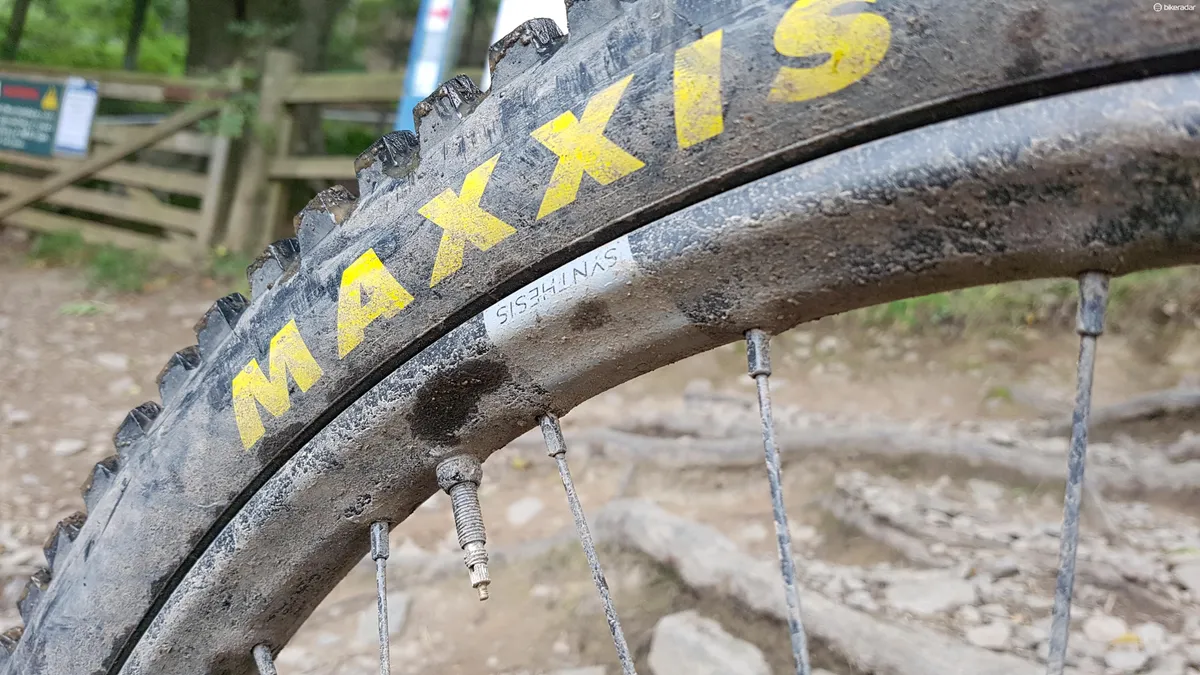
Longer term and back-to-back testing of the wheels will certainly reveal more. Crankbrothers has made some fairly bold claims about the Synthesis wheels, but on first impressions, I certainly wouldn’t complain if I found them on a bike.
